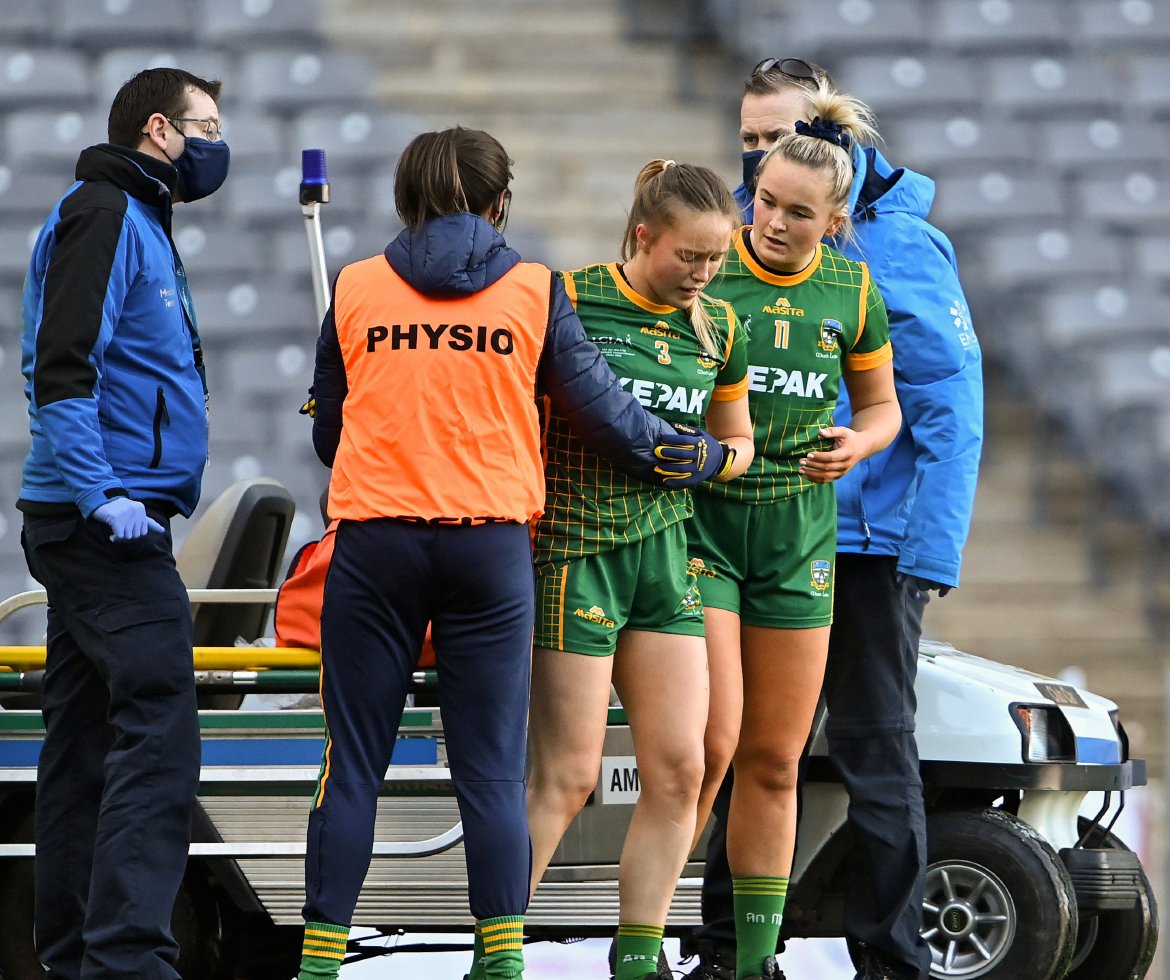THERE are certain times of the year when we hear about injuries blighting a team. This is one of them. I’m no expert in body mechanics and physiology but I’d wager it’s due to a combination of factors such as transitioning from pre to in-season training, the added intensity of matches and variables such as weather changing the conditions underfoot. That and pure bad luck.
That’s the really niggly thing about an injury. You can do everything right and be confined to the stand, while the lad down the road who refused stretch after training and who didn’t believe in recovery starts in your place. Sport is excellent for your health. Until it actively injures you. We place a lot of emphasis on physical injury, and often little thought is given to the mental recovery that should also happen. We all come from a culture of playing through the pain. Especially if there’s a trophy on the line.
Players learn to live with pain and injury. Partly because of ego and the fear of being left behind. Partly too because they live in a world where playing through pain is celebrated. No pain no gain. When sometimes the only gain is a long-term injury that leaves you limping or in pain for the rest of your life.
I don’t have enough hands and digits to count the number of high-profile former players who suffer much more than the average aches of life and they’re only in their 40s. Surgeries like hip and knee replacements are becoming commonplace amongst younger people. What’s going on in our heads that normalises this? A culture of people putting our bodies and minds on the line, which has permeated down from top-level sport to the local club and into our schools.
Layer on top of that the players, teachers, parents and managers who have decided that sport science doesn’t apply to them. That kind of scepticism leads to long-term problems like arthritis, movement issues, joint replacements, metal health difficulties.
You don’t need to be an expert in psychology to understand the power of a coach, or even a local supporter, admonishing a player for not doing their bit or letting the team down if they don’t play in pain. Especially when the pride of the parish is on the line. Or a fear of a loss of status.
If your identity is all wrapped up in being an excellent footballer, being side-lined isn’t good for you then. What are you? Your mind can easily start whispering to you, getting louder and louder and louder, telling you that you are useless. If you don’t have a nurturing support system, you could tip into a dark hole while your team trains away without you and you’re unlucky enough to have a manager who only contacts you when you are ‘useful’ to them.
All this has led us to think that it is normal to play while injured, or even hurt. It’s why we have had to create concussion protocols, to protect players from themselves and people who are supposed to protect them. More and more evidence is coming from the NFL in the USA and soccer in the UK that head injuries can affect cognition years after the event. Even when it appears you have recovered. I’m not sure Alzheimer’s Disease or another kind of dementia or brain injury is worth any kind of medal.
What is the point of being the pride of the parish in your 20s if you end up chewing painkillers to get through the day, or worse, numbing yourself with drugs, meds, alcohol or other destructive behaviours? Our culture around injury needs to change. Very simply, pushing through the pain barrier can at best delay your recovery and return to the field. At worst, it can have long-term health implications for your body and mind. There are some ways to counteract this.
l Ensure that your self-worth is not solely wrapped up in sport. Sport can disappear in an instant in ways you have no control over. A new coach might drop you, or an injury can dump you as well. <pbullet value=”pbullet”><p xmlns=”urn:schemas-teradp-com:gn4tera”><p><pbullet>
l Listen to recovery advice from physiotherapists, doctors and surgeons. If it takes on average nine months to recover from ACL injury, don’t fall into the trap of thinking your body is different to all the other ones they’ve worked on. You will do damage.
l Stay connected to people inside and outside your team. Spend time with those you see less of due to sport, while ensuring you’re still part of the team. A decent coach will have assigned you a different role to keep you involved until you’re ready to train again. If you are ignored, that is a red flag.<pbullet value=”pbullet”><p xmlns=”urn:schemas-teradp-com:gn4tera”><p><pbullet>
ll Take this time to work on other aspects of your game. This is an opportunity to work on your mental strengths. Learn how to visualise, focus on your goals, and find new strengths so that you return a more complete player. <pbullet value=”pbullet”><p xmlns=”urn:schemas-teradp-com:gn4tera”><p><pbullet>
l Understand that you may have a fear of re-injury when you return. This is common. Focus on what you want to happen, not what you’re afraid might. Research has shown that players who don’t deal with this are actually at a higher risk of re-injury.
For the rest of us, we need to exercise a bit of cop on. Players aren’t machines. They are as human as you and I, and perhaps even more fragile at times.
READ MORE – Do we really care about player welfare. Click here…
Receive quality journalism wherever you are, on any device. Keep up to date from the comfort of your own home with a digital subscription.
Any time | Any place | Anywhere












